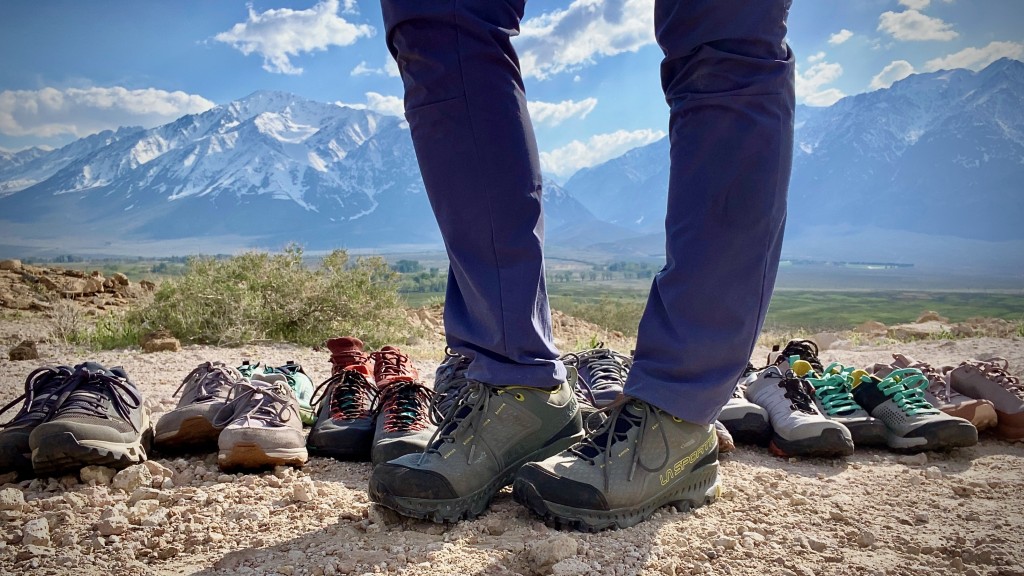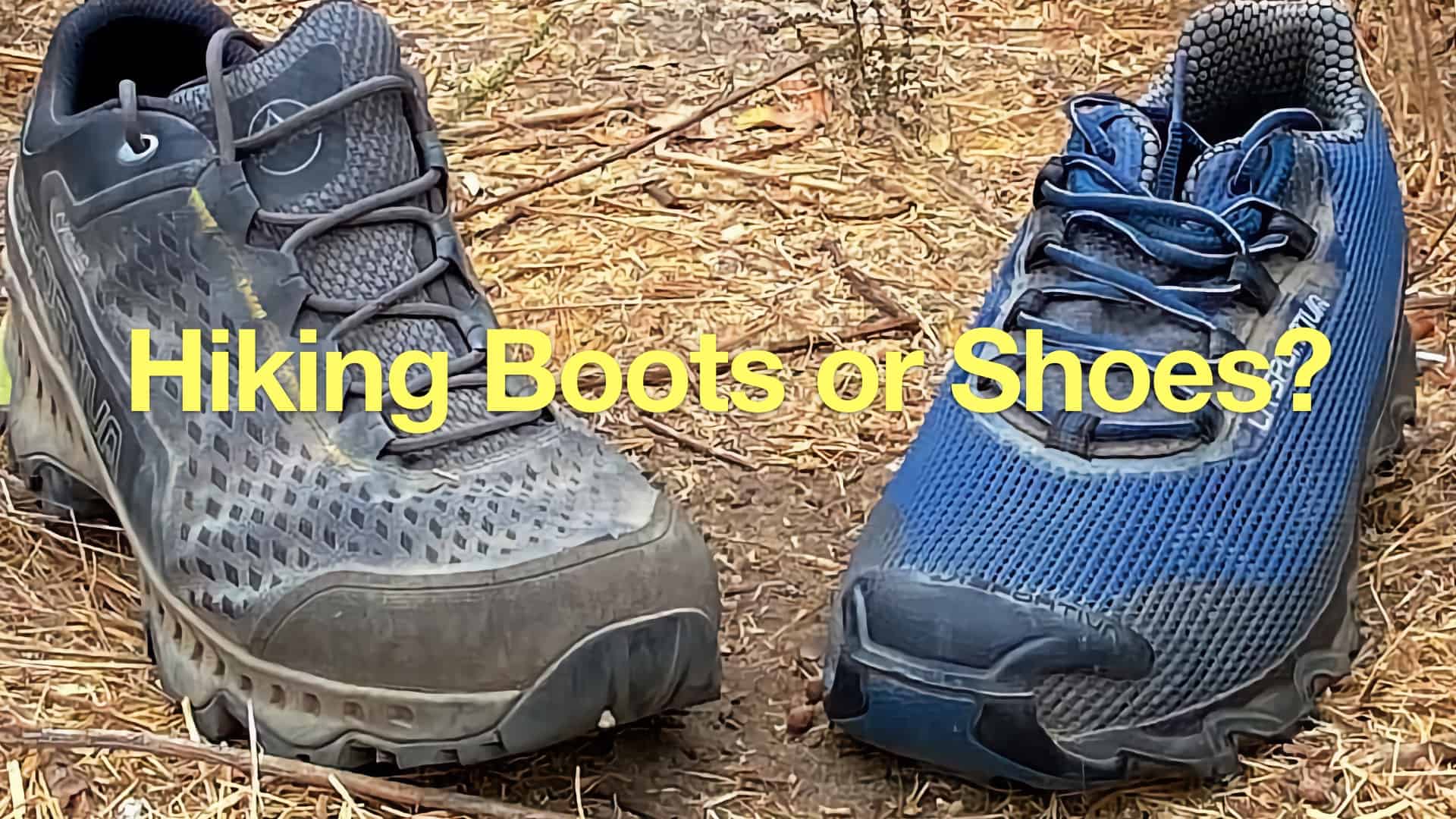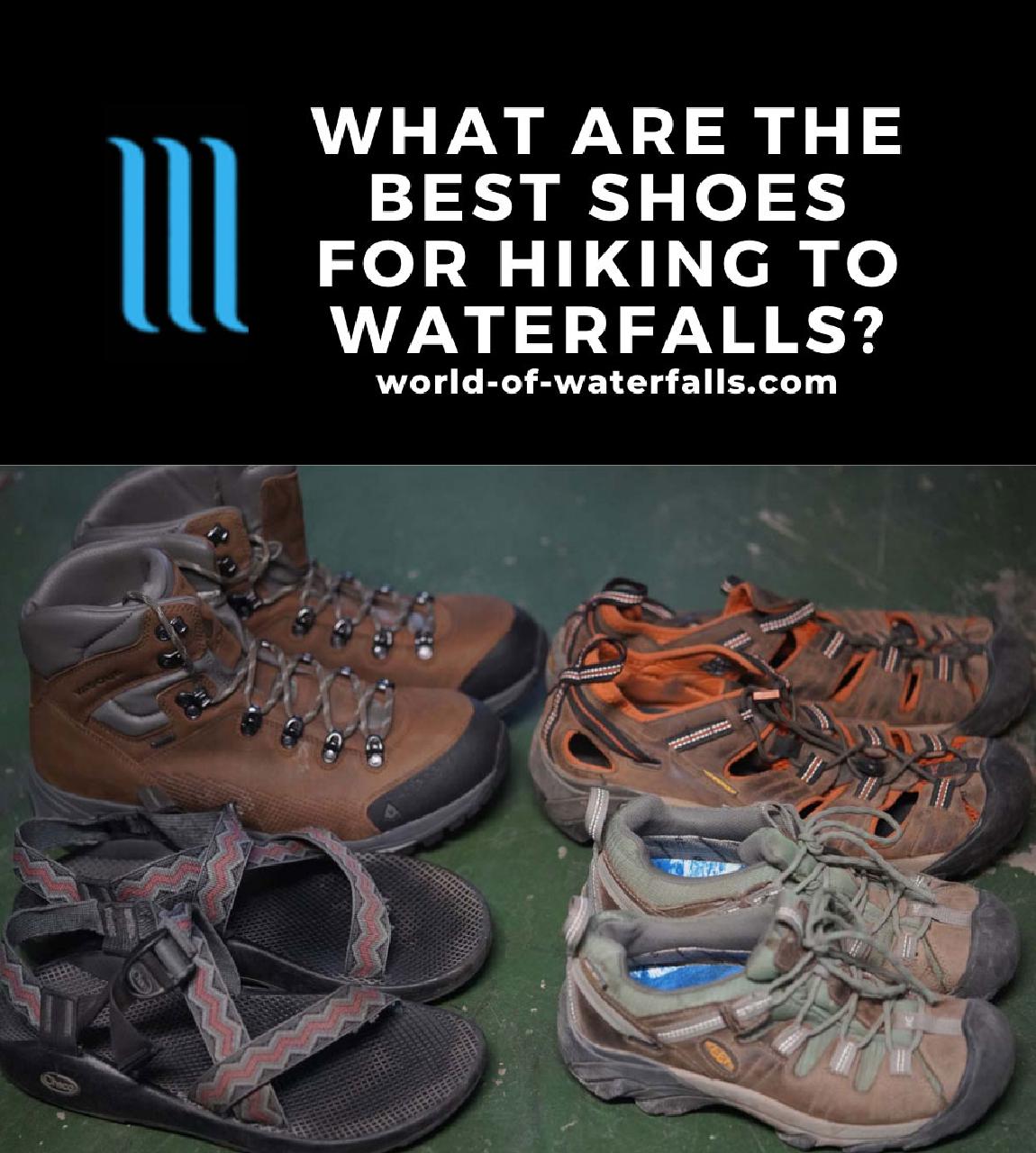What are the Best Shoes to Wear for Hiking? It’s best to wear low-cut hiking shoes with flexible midsoles. Such shoes are suitable for day hiking and offer comfort and support.
They are also ideal for ultralight backpackers covering long distances. Additionally, mid to high-cut day hiking boots can provide the necessary support and stability for short backpacking trips with light loads. Choosing the right footwear is crucial for a comfortable and enjoyable trail experience when you are gearing up for a hiking trip.
Walking through rugged terrain requires proper foot support and protection against the elements. But fear not, as we are here to guide you through the process of choosing the perfect pair of hiking shoes to ensure a safe and pleasant hiking experience. In this comprehensive guide, we’ll explore the characteristics of the best hiking shoes and present valuable information to help you make the right decision. So, lace up your boots and get ready to discover the ultimate footwear to conquer the trails!

Credit: www.harpersbazaar.com
Benefits Of Choosing The Right Hiking Shoes
Choosing the right hiking shoes is crucial for a comfortable and safe outdoor experience. The benefits of selecting the proper hiking shoes extend to comfort, support, protection, traction, & durability. These factors are essential for maintaining stability on various terrains, preventing injury, and enhancing overall hiking performance.
Comfort And Support
Comfort is paramount when choosing hiking shoes, as it directly influences your hiking experience. Proper support reduces fatigue and minimizes the risk of foot injuries, ensuring you can enjoy your hike without discomfort.
Protection
Protection is fundamental to hiking shoes, especially when traversing rugged and uneven terrain. A sturdy pair of hiking shoes guards your feet against sharp objects, while a reinforced toe cap protects against accidental impacts.
Traction
Superior traction is essential for maintaining stability on slippery or uneven surfaces. Hiking shoes with deep lugs and grippy outsoles offer superior traction, reducing the risk of slips & falls, even in challenging conditions.
Durability
Investing in durable hiking shoes ensures longevity and sustained performance on numerous hikes. Durability is essential in order to endure the rigors of life. Various terrains, weather conditions, and extended wear provide reliable support throughout your outdoor adventures.

Credit: www.outdoorgearlab.com
Types Of Hiking Shoes
When it comes to choosing the right footwear for hiking, it’s important to consider the different types of hiking shoes available. Each type has its features and benefits catering to various hiking conditions and preferences.
Trail Running Shoes
A favorite option for hikers is trail running shoes due to their lightweight design and flexibility. These shoes provide excellent grip and traction, making them suitable for rugged terrains and uneven surfaces. Their sturdy build and cushioned soles offer comfort and protection during long-distance journeys.
Day Hiking Boots
Day hiking boots are designed for short backpacking trips and day hikes with light loads. They come in mid to high-cut models, providing ankle support and stability. These boots offer durability and protection, making them ideal for varied terrains and unpredictable weather conditions.
Walking Shoes
Walking shoes are a lightweight option for hikers, featuring a thinner sole for a more natural feel. They are suitable for climbing steep slopes or mountains, as they reduce the weight on your feet, making hiking less tiring. These shoes are perfect for casual explorations and easier trails.
Factors To Consider When Choosing Hiking Shoes
When choosing hiking shoes, it is important to consider factors such as the terrain, weather conditions, & your individual foot shape and support needs. Look for shoes with good traction, ankle support, & durability to ensure a comfortable and safe hiking experience.
Terrain And Trail Difficulty
When selecting hiking shoes, it’s important to consider the terrain and trail difficulty you’ll be facing. Different types of terrain require different shoe features to ensure optimal comfort and protection; for more rugged and uneven terrains like rocky mountains or muddy trails, shoes with sturdy soles and ankle support are recommended to prevent ankle sprains or injuries. On the other hand, if you are hiking on well-maintained paths or flat terrains, low-cut models with flexible midsoles may be suitable.
Weather Conditions
The weather conditions can greatly impact your hiking experience, so choosing shoes that are appropriate for the climate is essential. If you’ll be hiking in cold or wet conditions, opt for shoes with waterproof membranes or consider wearing hiking boots. These will provide better insulation and dry your feet, preventing discomfort and potential frostbite. On the other hand, if you’re hiking in hotter climates, look for shoes with breathable materials to keep your feet cool & prevent excessive sweating.
Foot Type And Pronation
Your foot type and pronation are crucial in finding the right hiking shoes. Understanding your foot type, whether you have high arches, flat feet, or neutral arches, will help you choose shoes that provide the necessary support and stability. Additionally, knowing your pronation pattern (underpronation, overpronation, or neutral) will guide you in selecting shoes with the appropriate cushioning and motion control features. Getting a proper fitting and consulting with a specialist is recommended if you’re unsure about your foot type and pronation.
Weight And Pack Size
The weight of your hiking shoes can affect your overall comfort and endurance on long hikes. Lightweight shoes are ideal for those looking to minimize fatigue and maintain agility. However, if you are carrying a heavy backpack or hiking in rough terrains, consider shoes with slightly more weight for added stability and protection. Additionally, the pack size of your hiking shoes is crucial, especially if you plan to go backpacking. Opt for shoes that can be easily compressed and packed without taking up excessive space in your backpack.
Expert Recommendations For Hiking Shoes
It is essential to select the right footwear for hiking in order to ensure comfort, support, and protection on the trails. With numerous brands & models available, it can be overwhelming to make a decision. That’s why we’re compiling a list of experts’ recommendations. For hiking shoes, including some of the top-performing brands in the market.
Salomon’s X Ultra
Salomon’s X Ultra has been a favorite among hikers for years thanks to its remarkable combination of comfort and on-trail performance. These low-cut hiking shoes feature flexible midsoles that are ideal for day hiking. The lightweight design is perfect for those who prefer a more agile feel while exploring the outdoors.
Oboz
Oboz is a renowned brand known for producing high-quality hiking shoes. Their footwear is designed to focus on durability, support, and traction. Oboz hiking shoes are available in various models, catering to the needs of various hikers. Whether you’re embarking on a short day hike or a multi-day backpacking adventure, Oboz shoes offer excellent performance on different terrains.
La Sportiva Spire Gtx
For hikers seeking a combination of comfort, durability, and weather protection, the La Sportiva Spire GTX is an excellent choice. These shoes feature a Gore-Tex lining, providing reliable waterproofing without sacrificing breathability. With a mid-cut design, they offer added ankle support, making them suitable for more challenging trails or backpacking trips with moderate loads.
Merrell Moab
Merrell’s Moab line has garnered a strong following among outdoor enthusiasts. Known for their versatility, these hiking shoes are designed to handle various terrains & weather conditions. The Moab line offers options for both men and women, ensuring a comfortable fit for all hikers. With durable construction, excellent traction, and ample cushioning features, Merrell Moab shoes are a reliable choice for any hiking adventure.
Best Women’s Hiking Shoes
For the best shoes to wear for hiking, consider women’s hiking shoes with durable soles and ankle support. Look for waterproof options for wet trails. Choose lightweight, flexible designs for day hikes and trail running shoes for longer journeys.
Overview
When it comes to hiking, having the right shoes is essential for comfort, support, and safety. For women, finding the best hiking shoes is crucial for a successful & enjoyable outdoor adventure. Whether tackling rugged terrains or exploring easy trails, reliable footwear is a must. This section will discuss the best women’s hiking shoes that offer superior performance and comfort.
Gearlab’s Recommendations
- The waterproof and breathable Gore-Tex membrane keeps your feet dry and comfortable.
- Quicklace system for easy & secure fit adjustment
- Durable construction and supportive midsole for stability on rocky terrains
- Flexible and cushioned midsole for excellent shock absorption
- Aggressive outsole with deep lugs for exceptional traction on various surfaces
- Wide toe box for added comfort and natural foot movement
- Breathable mesh upper enhances ventilation to keep your feet cool
- Vibram outsole provides excellent grip and traction
- Sturdy construction with a reinforced toe cap for added protection
Switchback Travel’s Recommendations
- The zero-drop platform promotes a natural foot position and encourages proper form.
- Responsive cushioning for added comfort on long hikes
- Generous toe box for enhanced toe splay and stability
- Lightweight and waterproof design for exceptional performance in various conditions
- Soft and cushioned midsole for maximum comfort and shock absorption
- High-top style with ankle support for added stability and protection
- Low-cut design for increased mobility and flexibility
- Gore-Tex liner keeps your feet dry and protected from the elements
- Aggressive tread pattern for outstanding traction on different terrains

Credit: hikingguy.com
Frequently Asked Questions For What Are The Best Shoes To Wear For Hiking
What Kind Of Shoes Should I Wear For Hiking?
For hiking, wear low-cut, flexible hiking shoes for day hikes and trail-running shoes for long-distance journeys. For short backpacking trips, use mid to high-cut day hiking boots. Consider lightweight walking shoes for steep slopes. Ensure comfort and support; waterproof options suit cold and wet conditions.
Is It OK to Wear Running Shoes For Hiking?
Yes, it’s okay to put on running shoes for the hike. They can provide comfort and flexibility on the trail. Just make sure to consider the terrain and weather conditions before choosing your footwear.
Is It Better To Hike In Boots Or Sneakers?
Hiking boots are better for cold, wet conditions, while sneakers suit paved nature trails. Both offer different benefits.
Are Walking Shoes OK for Hiking?
Walking shoes can be suitable for hiking due to their lightweight nature and less strain on the feet. However, it is important to consider the terrain and difficulty level of the hike. Hiking boots may provide better support and stability for steep slopes or mountains.
Ultimately, choose footwear that keeps your feet comfortable and allows you to enjoy the hike.
Conclusion
When it comes to hiking, wearing the appropriate shoes is crucial for a comfortable and enjoyable experience. Hiking shoes are perfect for day hiking with their flexible midsoles and low-cut designs. Opt for mid to high-cut day hiking boots if you prefer more ankle support.
However, if you’re a fan of running, trail-running shoes can be a great choice for long-distance hiking. Ultimately, the right shoe for you is the one that keeps your feet happy and gets you out on the trail. So, lace up and hit the great outdoors!

